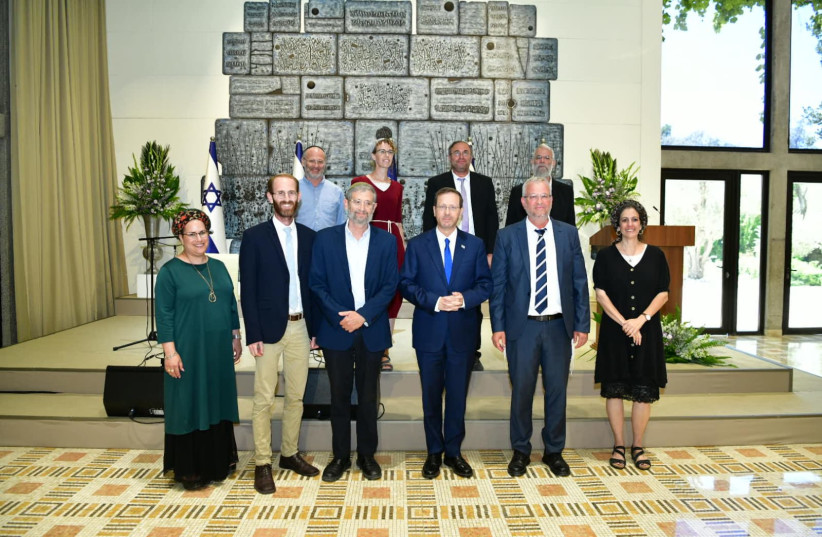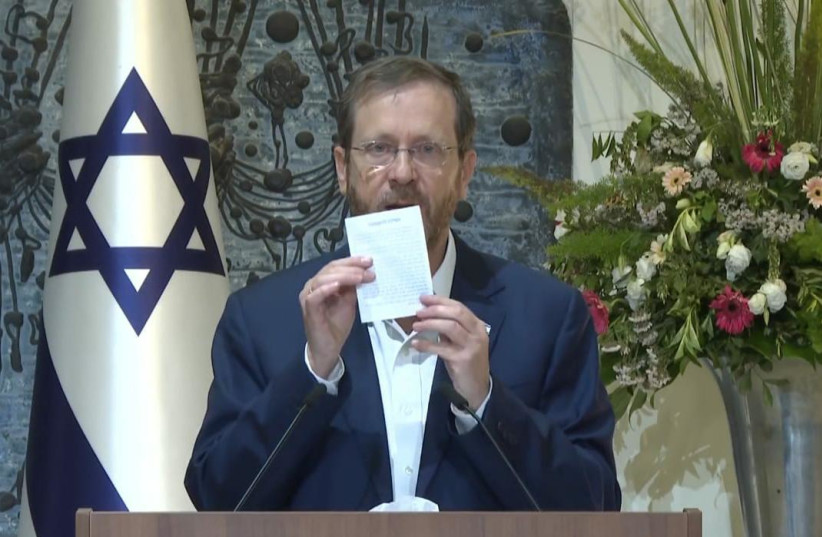The Modern Orthodox Beit Hillel rabbinic organization celebrated its 10th anniversary last week, traveling throughout the country in order to create dialogue with the Israeli public. Established by the late Rabbi Ronen Neuwirth, it was the first Orthodox Israeli rabbinic body to be run equally by men and women.
Rabbis and Rabbaniyot (female orthodox halachic leaders) of Beit Hillel, “the leading voice of moderate, inclusive Torah leadership in Israel,” as they describe themselves, also hosted a gala event at the President’s Residence.
During their “Rabbi and Rabbaniyot Listening Tour” across the country, the rabbinic leaders met with a wide range of Israeli social groups for direct dialogue on pressing issues in Israeli society. Beit Hillel, whose mission is to voice “attentive rabbinic leadership,” aimed throughout the tour to get to know Israeli society more deeply, and to bring its diverse groups closer together.
What happened at the President's House?
After the opening event at the President’s House, the rabbis and rabbaniyot traveled to a different geographic area of Israel each day in order to meet as wide a range of the population as possible.

Highlights of the tour included a visit to the Shomron, where they met with rabbinic leaders from the area, visited the biblical site of Mount Ebal, and created a dialogue with people living in hilltop settlements. During their trip to the South, they met with Kulna, an organization promoting the culture of traditional Israeli Jews; with Bedouin to discuss the challenges they face; and in a development town with a Garin Torani community – a group of religious Zionist individuals and families who settle in communities with low religious population.
At this 10th anniversary celebration, the rabbis and rabbaniyot spoke with the president, presented the organization’s work over the years, and received his blessing for the next decade to “continue deepening halachic discourse through dialogue and listening,” according to a press release that was sent after the event.
“Rabbis and rabbaniyot of Beit Hillel, the last decade has proven that you have an important and meaningful role to play in Israeli society,” President Isaac Herzog said at the event. “Israeli society is looking for dialogue and a listening ear, which you represent. The journey that you are going on is crucial for Israeli society, and it is also important for you as spiritual and communal leaders. I am happy that you chose to embark on this journey from the home of the people, the President’s House in Jerusalem.”

“Israeli society is looking for dialogue and a listening ear, which you represent. The journey that you are going on is crucial for Israeli society, and it is also important for you as spiritual and communal leaders. I am happy that you chose to embark on this journey from the home of the people, the President’s House in Jerusalem.”
President Isaac Herzog
Beit Hillel chairman Rabbi Meir Nehorai said that “this journey within Israeli society is a culmination of our work over the past 10 years. During this time, we published halachic positions relating to the people, society and our country.”
Rabbanit Dr. Tova Ganzel, a member of the organization, said that “The rabbis of Beit Hillel, in a pioneering and unprecedented decision, chose not to give up on the voices of women who had completed the relevant rabbinic studies and to give them a seat at the table.”
CEO Boaz Ordman said that “the job of Torah leadership is to go out to the people and to encounter, face-to-face, burning issues and big questions.”
